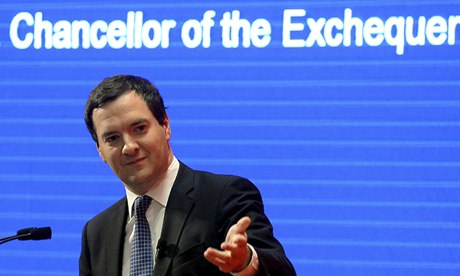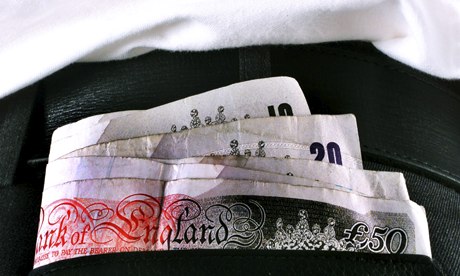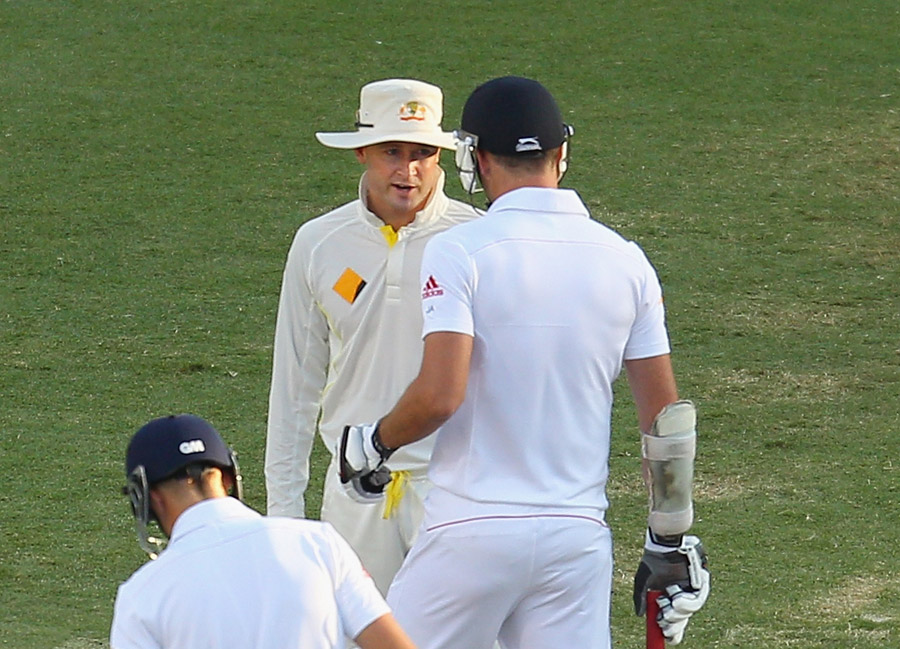The real cultists are not Maoists, they're CEOs
It is not only in religious or political circumstances where people are made to follow a leader unthinkingly

Fred Goodwin is portrayed as a tyrant in a new biography. Photograph: Murdo MacLeod for the Observer
The great leader's followers know he goes "absolutely mental" at the tiniest deviation from the party line. He screams his contempt for the offender in public so that all learn the price of heresy. Go beyond minor breaches of party discipline and raise serious doubts about the leader's "vision" of global domination and that's the end of you. "You're toast," he says, and his henchmen lead you away.
In private, his underlings mutter that the leader is a "sociopath" with "no capacity for compassion". Even though he terrifies them, their hatred of him is far from complete. When he relaxes, the great leader can be charming. His favour brings reward. The further you move up the hierarchy, the more blessings you receive, and the more you believe the leader's propagandists when they hail his "originality" and "rigour". History is vindicating the leader. His power is growing. The glorious day when the world recognises his greatness is coming.
I could be describing Stalin's Soviet Union or the "Church" of Scientology. With last week's allegations that Maoists in south London kept women as slaves, I could be going back into the lost world of Marxist-Leninism. The British Communist party demanded absolute intellectual conformity. Vanessa and Corin Redgrave's Workers Revolutionary party and the Socialist Workers party wanted absolute submission, including sexual submission from women. The UK Independence party meanwhile is looking like a right-wing version of a Marxist sect. Nigel Farage's cult of the personality allows no other politician to compete with the supreme leader and no Ukip official to talk back to him.
As it is, the portrait of a tyrant comes from Iain Martin's biography of Fred Goodwin(one of the best books of the year, in my view). Like a communist general secretary or religious fanatic, he was enraged by the smallest breach with orthodoxy: not wearing the company tie; fitting a carpet in a Royal Bank of Scotland office that was not quite the right colour. The propagandists who praised his rigour and independence worked for Forbes magazine, the Pravda of corporate capitalism. Goodwin took RBS from being a sleepy Scottish bank to a global "player". So history did indeed seem to vindicate him – for a while.
With Britain hobbling in to 2014 like a battered beggar, we should accept that corporations can be as demented and dictatorial as any millenarian movement. People resist the comparison because businesses seem such modest enterprises. The godly persecuted heretics and apostates and the communists punished all dissent because they believed the kingdom of God or workers' paradise could be theirs if believers followed the one true course.
Businesses don't want Utopia. They just want to make money. Dennis Tourish, Britain's best academic authority on how hierarchies enforce obedience, has no problem with the comparison, however. His latest book, The Dark Side of Transformational Leadership,puts the Militant Tendency alongside Enron, the mass "revolutionary suicide" by Jim Jones's followers at Jonestown with the mass liquidation of Britain's wealth by the banks. The ends of an L Ron Hubbard or Fred Goodwin may be incompatible, he says, but the means are same.
In any case, the language of business has become ever more cultish. In the theory of "transformational leadership", which dominates the business schools, the CEO is a miracle worker. In Transformational Leadership, by Bernard Bass and Ronald Riggio, he is described, not by some gullible Forbes hack, but by two supposedly intelligent American academics. The transformational leader "inspires" his follower to "achieve extraordinary outcomes", they say. He "empowers them" to "exceed expected performance" and show ever greater "commitment to the organisation".
I don't see why anyone should find the comparison with fanatics so hard to accept and not only because the idea that CEOs can manufacture new and better subordinates matches Trotsky's belief that the revolution would create a "new man who raises himself to a new plane".
The nearest you are likely to come to experiencing life in a dictatorship is at work. Unless you are fortunate, you will discover that the management is the source of all ideas and all power. Executives will have privileges that bear no more relation to real achievement than the fat and ugly cult leader's expectation of sex. In 2012, the median pay for CEOs in the USA was $14.4m, the average salary for employees $45,230. In Britain, the High Pay Commission found that the average annual bonus for FTSE 300 directors had increased by 187% in 10 years even though the average year-end share price had gone down by 71%.
Above all, whether you are in the public or the private sector, John Lewis or Barclays Bank, you will learn that if you challenge authority you will lose the chance of promotion and if you challenge it in public, you will lose your job. To prosper in the workplace, as in the dictatorship, you must tell leaders what they want to hear.
Since the richest executives on the planet brought the west down, there has been an understandable interest in the psychology of corporate power. One experiment stays in my mind. Researchers divided volunteers into groups of three and gave one the title of "evaluator". Half an hour later, they gave each group a plate of biscuits. The evaluators grabbed more cookies and sprayed crumbs as they ate with their mouths open. After just 30 minutes, the conviction that they were managers produced greed and the belief that normal rules did not apply to them.
I do not doubt that, if required, the courts will deliver justice to the alleged victims of the Brixton Maoists. Justice is harder to find elsewhere. It is not merely that the banking scandals have not led to one prosecution. With the honourable exception of the coalition's push to protect NHS whistleblowers, there has been no interest in making public and private hierarchies less cultish. The left is not saying loudly enough that we need worker directors on all boards as a non-negotiable minimum. The right does not admit that the old way of doing business failed.
In these dismal circumstances, you must look after yourself. If you work in an organisation where you cannot challenge your superiors without fear of the consequences, get out. Stay and you will become a paranoid flatterer. You will suffer all the psychological consequences of living a frightened life in a playground run by strutting bullies. Dennis Tourish's words should be your prompt: the corruption of power may be bad, but the corruption of powerlessness is worse.








